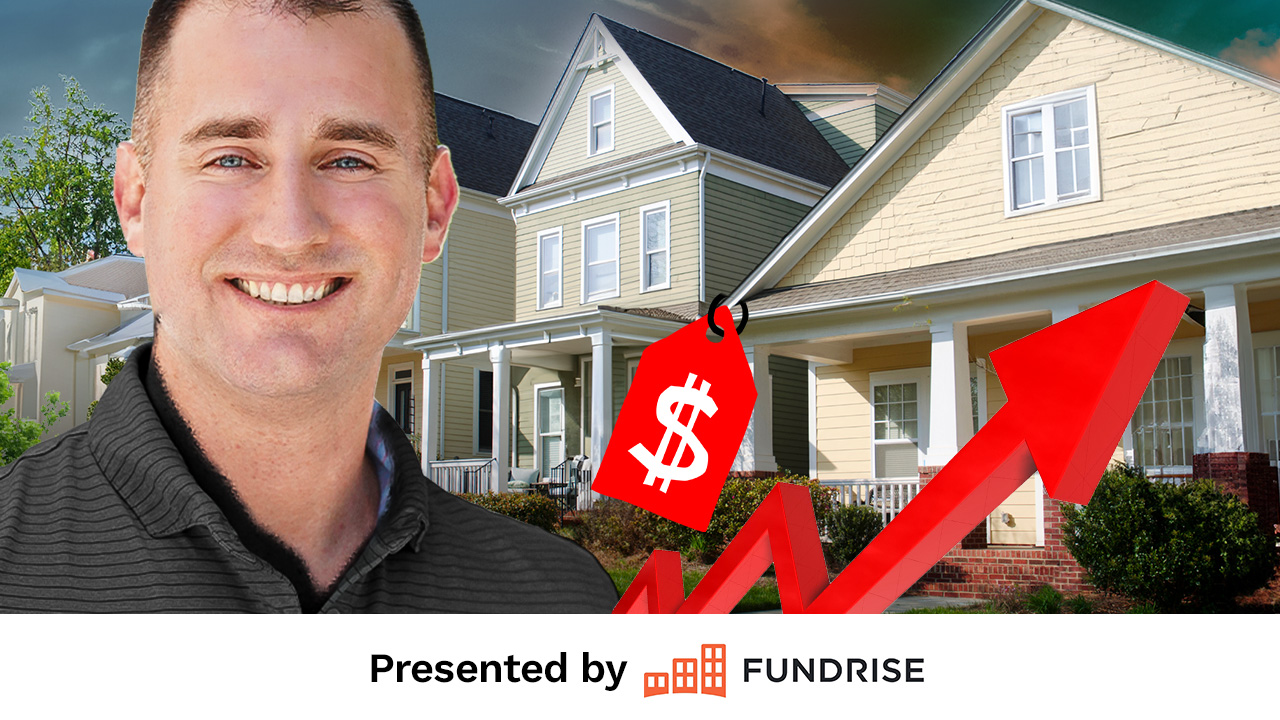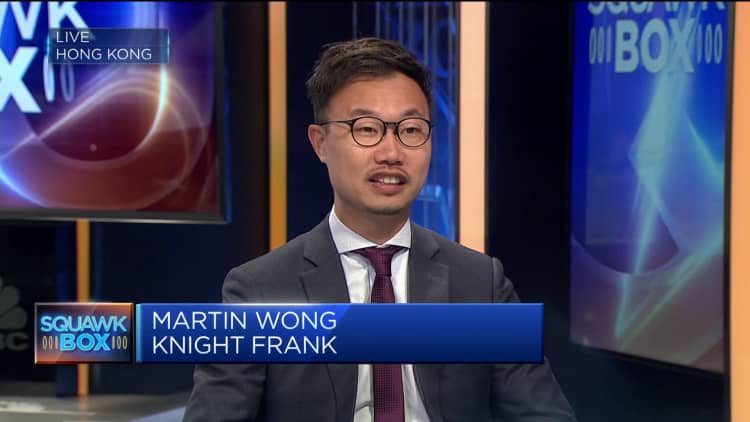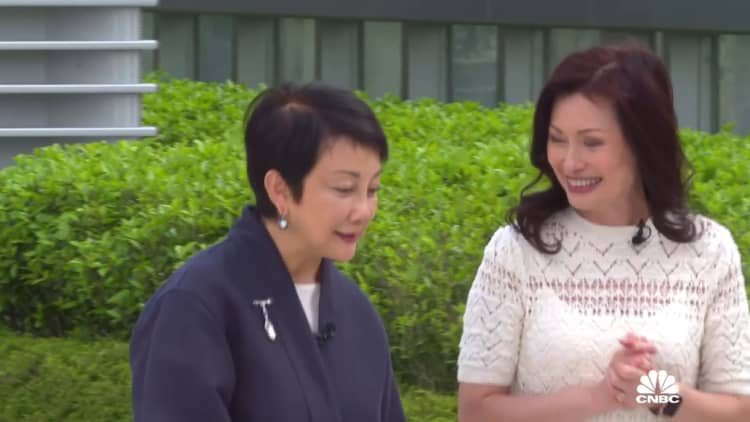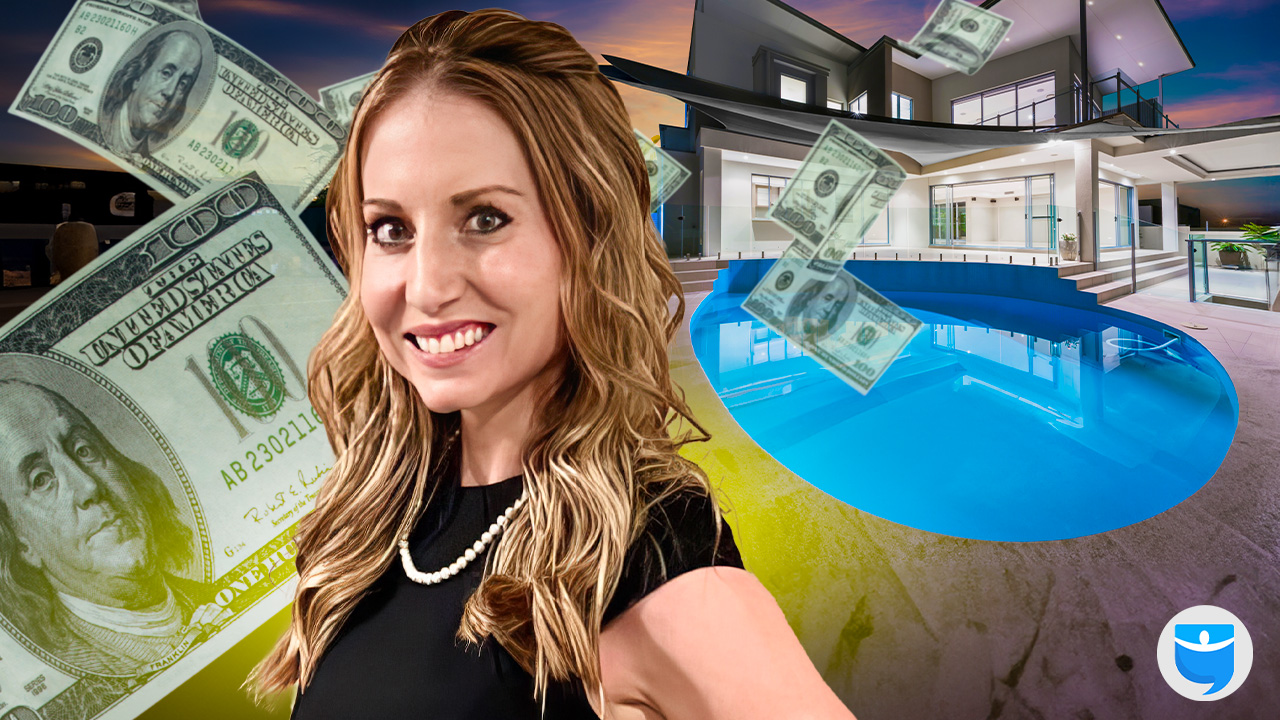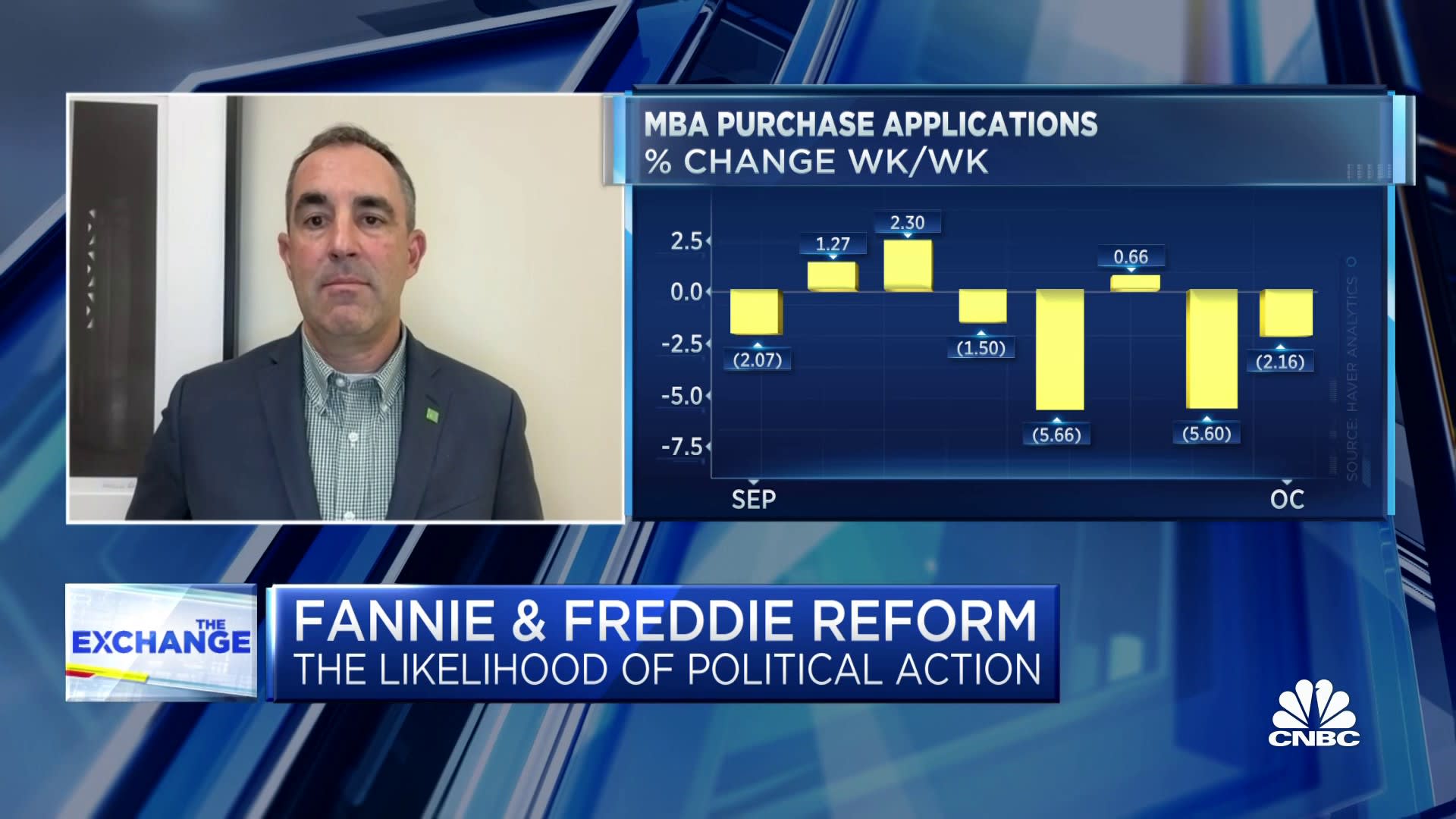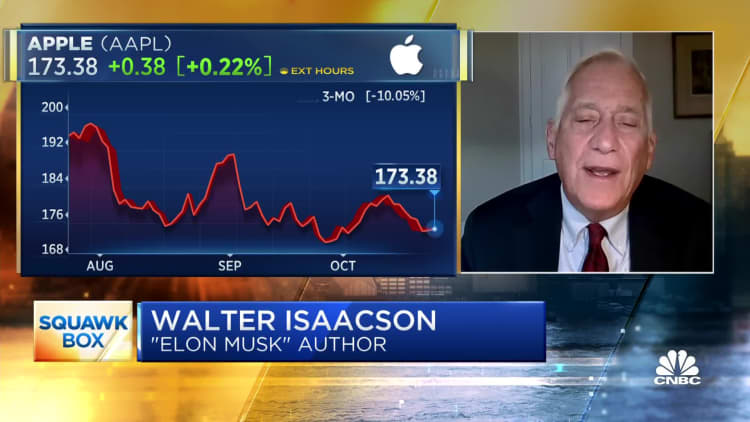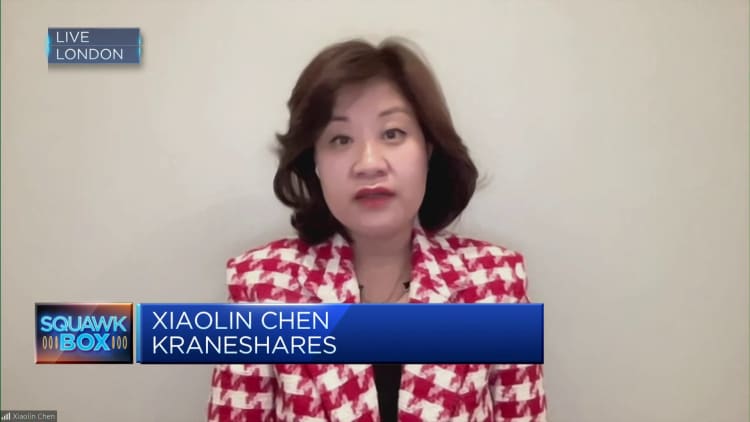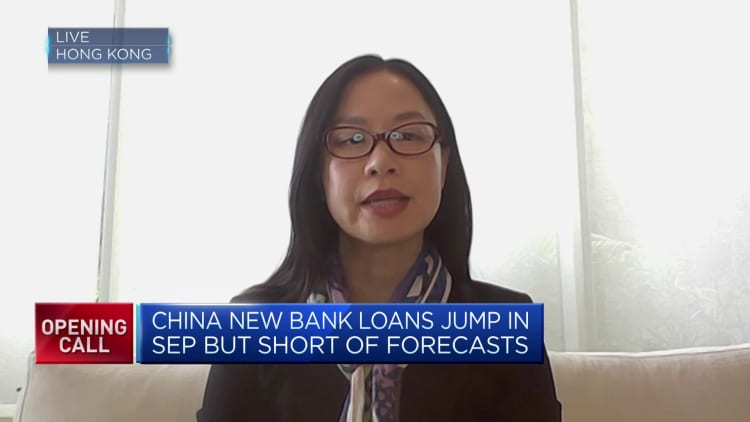This Inventory Shortage Could Last Decades
Another housing market “frenzy” is much more likely than many of us thought. With the traditionally slow fall/winter season upon us and housing inventory gradually inching up, home buyers could get a much-deserved break. But this won’t last for long. The long-term outlook on the housing market isn’t looking good for buyers, and many Americans will be forced to rent as a result.
So, what could cause the next home buying “frenzy”? We’ve got Clayton Collins, HousingWire CEO, on the show to give his take. HousingWire has been acquiring data and research companies as fast as possible, trying to build the most perfect picture of the housing market available. And right now, it looks great for sellers but not buyers.
With inventory still in the gutter and mortgage rates at a twenty-year high, homeowners will only consider selling once rates have dropped. But won’t lower rates flood the market with eager home buyers all over again? We’ll get Clayton’s opinion on what could fix the inventory shortage, when mortgage rates could drop, real estate markets with the best chances of price cuts, and what to watch out for in 2024.
Dave:
Hey, everyone. Welcome to On The Market. This is Dave, your host. Today, we are going to be joined by one of the OG data and market media people in this entire industry. His name is Clayton Collins. He is the CEO of HousingWire Media. If you’re not familiar with HousingWire, they’re one of the biggest housing market media companies in the industry. They don’t focus really on investors like we do here at BiggerPockets. They focus on the broader marketplace, so mortgage lenders, real estate agents, a lot of those types of things. But Clayton and his team, they have been acquiring data companies actually over the last couple of years, and so they have some of the most cutting-edge data of any of the sources out there.
So, today, I’m having Clayton on to talk to him about some recent changes that we’ve been seeing in the market. So, inventory, as you all know, is a really big issue this year, and they have some of the most up-to-date information about that, so I’m eager to talk to him about if there’s a shift going on as we go into the winter because I’m starting to feel one or sense one, and I’m curious to see what he’s seeing. We’re also going to talk about Clayton’s predictions for mortgage rates, and I know this is something people really want to know, so I’m going to talk to Clayton and get his opinion about where mortgage rates are going to go and why.
I know we all like to prognosticate, but there are some really important macroeconomic trends and technicalities that go on behind the scenes that Clayton knows a lot about and is going to help share with us today. So that’s what we got for you today. It’s going to be an awesome show. It’s a lot of fun. Clayton is really great at explaining some really important topics in the housing market. So we’re going to bring him on in just a minute here. But first, we’re going to take a quick break.
Clayton Collins, welcome to On The Market. Thanks for being here.
Clayton:
Dave, it’s my pleasure. Thrilled to be your guest today.
Dave:
Well, yeah, this is going to be a lot of fun. For people who don’t yet listen to the HousingWire Podcast, can you tell us a little bit about yourself and your work at HousingWire?
Clayton:
Yeah, happy to. So I’m the CEO at HW Media where I have the pleasure of leading our HousingWire team. At HousingWire, we’re focused on providing housing professionals from real estate brokerage, and agents to loan originators, and mortgage capital markets leaders, loan servicers with the full picture of the housing economy. So we have a team of editors and reporters that cover everything that happens in housing from housing market and interest rate news to the movement of people, and companies, and M&A, and innovation. Everything that happens in housing.
I came into this venture, and I’ll tell you more about my background, Dave, more as a banker type, but somehow I got sucked into hosting a podcast. Now, I’m the host of the Housing News Podcast. So, each week, I interview different executives in the housing industry from mortgage bank CEOs to economists about what’s happening in their world. We keep it like a board level conversation and talk about some of the tougher topics that they don’t always get to talk about, and I try to pull out some of that juicy knowledge in this really fun format that I think you and I have both grown to love.
Dave:
Oh, for sure. Yeah, and it’s a great show. I do listen often, and you do get excellent guests, so I definitely recommend it.
Clayton:
I appreciate it.
Dave:
One of the other things you didn’t even touch on, and I’ve been following HousingWire for many years, is that recently, you acquired Altos Research, and we have had their founder, Mike Simonsen, on the show. He and I are friendly as well. Now, you guys are tracking some of the most up-to-date housing market data, honestly, there is that I see. Can you just tell us a little bit more about what you all are looking at?
Clayton:
Yeah. So, Dave, I appreciate you asking about that. Altos is an important part of that phrase I use, “The full picture.” So we believe that business news and business content is on a constant evolutionary cycle that’s leaning more and more toward data-enriched content, and research, and proprietary information, and narrative-driven journalism and storytelling is an incredibly important part of a data-rich ecosystem. It’s how professionals consume information. But we know for us to achieve what we want to achieve at HousingWire by being the full picture, we need experts like Mike and data like we get from Altos to really color that picture.
Altos tracks 100% of active listings in the country. So we like to think of Altos as the most real-time source of data for what’s happening in the active real estate market. So we’re watching every active listing, every price change, every pending, all the data that drives market intelligence, and our users, which are primarily real estate agents, title professionals, and loan originators, use that information to better inform their home buyers, and sellers, and referral partners.
So we take all this active market data, and decipher it down, and cleanse it, and make it understandable so professionals at the local level can be the expert in their market and know exactly what’s happening in their zip code, or their city, or their neighborhood. We have some really cool visualizations of data and the health of the market we call Market Action Index, and we bring all these tools directly to the professionals that are working with home buyers and sellers every day, and make it easy for them to understand what’s happening in housing.
Dave:
Yeah. Great. I mean, I totally agree with the value proposition. It’s the whole idea behind the show as well, that we need more narrative data-driven information in today’s world, and you guys are doing a great job at it. Just for anyone listening, you can check it out. A lot of it is just available on HousingWire. You can go check it out right there, but tell us, Clayton. What are you seeing right now because inventory has really been the story of the year? It’s the word of the year in real estate, I guess, but things are starting to look a little different as we’re heading into Q4. What are you seeing?
Clayton:
Yeah. I mean, it’s been an incredibly… I don’t want to use the trite term of challenging market. It’s been a complicated market, Dave. So, over the last year and a half, we’ve seen interest rates, mortgage interest rates grow at a faster pace than we’ve seen at nearly any time in history, and we’re at a point right now where interest rates are at 20-year highs, and that creates some really challenging dynamics in the market. In most environments where interest rates expand this quickly and reach multi-decade highs, you’d start to see some serious pain in the underlying asset, and you’d start to see home prices decline. But there’s this other dynamic, and it’s that word that you just mentioned, “inventory,” that’s made this challenging market more so of a complicated or complex market.
So, depending on the research you follow and the analysts that you trust, there’s a view that we’ve been underbuilding in the US for at least 13 years, and household formation has far outpaced new inventory coming to market. So we have this demographic push of first-time home buyers and people that are forming households that are creating demand in the US housing economy, and we just haven’t kept up. That undersupply has created an inventory constraint, and despite the pressure with mortgage interest rates, we’ve seen home prices hold up. In most markets, home price appreciation has continued, and it creates this really unhealthy dynamic where first-time home buyers, repeat buyers all face affordability challenges finding the home that they want, and it creates a pretty funky scenario in the residential housing ecosystem.
Dave:
Yeah. Definitely. I mean, I think we’re all getting used to this low inventory situation.
Clayton:
Yeah.
Dave:
Do you see anything in your data or just in your own opinion that would increase supply? We talk a lot on the show about demand because that seems more variable, but I’m having a hard time. I’ve been asking a lot of guests this. Do you think anything will change the supply picture through the end of this year maybe into 2024?
Clayton:
Do you want me to hunt for silver linings or-
Dave:
Sure. Do whatever you want to do.
Clayton:
No. I think the reality is I do not see a dynamic that changes the inventory or supply situation drastically in the foreseeable future. I think we’re looking forward at a multi-year, potentially multi-decade market where we operate in a lower inventory, lower supply, supply-constrained market. Now, we know coming out of COVID in a market that moved incredibly quickly to the upside in terms of volume, and then now this interest rate increase that year-over-year metrics are hard to track, and there’s going to be noise in every measure where we’re looking at month-over-month, year-over-year even normalizing for COVID. There’s a lot of noise in year-over-year metrics.
So, today, as we sit in fall of 2023, we’re watching the Altos Research data, and we’re seeing that inventory today is still 5% lower than inventory of last year despite the fact that we’ve been watching inventory increase each week for the last several months. So we start to see this trend where more inventory is coming available, and that’s coming available because days on market is extending. So homes are not moving as quickly as interest rates approach this 7.5%, 8% range. So homes are sitting longer, so inventory is building. Now, the easy headline there, the housing bear, the bubble boy persona, our analyst, Logan Mohtashami, would-
Dave:
Yeah, we’re big fans of Logan.
Clayton:
Yeah.
Dave:
I love Logan. His terminology is hilarious.
Clayton:
Yeah. He’s a genius when it comes to colorful terminology. Some of the players in this housing ecosystem that we operate in. So, the bubble boy mentality. It’d be like, “Oh gosh, we’re looking at multi-months where every single week, inventory is climbing. This is a problem brewing.” But we’re still sitting at a place with 5% fewer homes than last year, and I’m not armed with the data as we come into this conversation, Dave, but we’re significantly lower than we were at almost every point pre-COVID in terms of what normal housing inventory levels look like.
Dave:
Oh, yeah.
Clayton:
So I’m going to warn you right now. Someone is going to write a headline and saying like, “Inventory is climbing. Home prices are getting slashed. We’re heading into a bubble, a turbulent market. It’s all going to blow up.” Our data does not show that. We show that we are climbing, but we’re climbing back toward a slightly healthier place, slightly healthier, but we are still in a savagely unhealthy housing market, and that unhealthiness is fueled by low inventory and affordability challenges that are complicated by mortgage rates and home prices.
Dave:
Yeah. I think it’s super important for people to pay attention to not just the percent change, but the absolute numbers when they’re looking at some of this data because there is something… As we’ve gone over on this show a little bit is that there’s something called the base effect. When you’re comparing this year to an anomalous year like last year, then data looks a little bit crazy. But if you zoom out a little bit and look over 5 years or 10 years, you can see that historically, inventory was much higher than it was even today even though it has started to increase.
Now, this is a good segue to one of the things I wanted to ask you because in certain markets, we are starting to see inventory approach or even exceed pre-pandemic levels. These are some of the COVID boom towns like Boise and Austin, I think Vegas and Reno, or those profile, but some of those markets have actually steady… been okay over the last few months even though they were previously in a correction. Do you see any change in demand or any downward pressure on prices in those markets?
Clayton:
Yeah. So we published some research based off of data from CoreLogic on some of the markets that are most likely to see a price decline, Dave. What we’re seeing in that data is that there’s different drivers in all of those markets. So there’s markets, like in Ohio and Pennsylvania, that are being driven by lack of population growth and lack of job growth, and then there’s markets in Florida or as we think back to the phrases of the last crisis, the Sand States just saw rapid appreciation in prices, and it’s more so of a normalization than a… but a normalization that will still sit significantly higher than the base rate of pre-COVID.
So there’s different drivers on what we’re seeing in each market. I think we saw a lot of exuberance and over-ask offers in certain markets that were really popular during COVID, particularly in states that had a better lifestyle, more lax enforcement of some of the COVID restrictions, no state income taxes, the things that attracted people over the last couple years. Some of those states are going to see a slowdown in home price appreciation, and certain markets may even see some declines in prices, but I think it’s very much… It’s hard to quantify those as bubble markets or crisis areas. It’s just a volatile pricing ecosystem that saw a fast run-up and is trying to find the equilibrium point.
Dave:
Yeah. It’s weird because it feels like there was this correction, at least a modest correction on a national scale. It was more pronounced in these types of markets. About a year ago in Q4 of 2022, maybe into Q1, and then things got better at least from a price perspective if you’re someone who wants high prices. I think certain investors of our investors don’t want high prices.
Clayton:
No.
Dave:
Now, it feels like… and things got better, and I think a lot of people are starting to think, “All right. We found a bottom.” To your point, there’s this pricing exercise that’s going on like, “What is real? What was COVID exuberance or this massive change in migratory patterns?” But now, it feels like we’re going… To me at least, it feels like we’re going back into the pricing exercise because rates just won’t slow down, and now we’re accepting… I feel like in the last two or three months, there’s finally market-wide acceptance that the Fed is not bluffing and that they are going to keep rates higher for longer, and we need to all deal with this. Now, there’s going to be this second pricing exercise that goes on.
Clayton:
Let’s not even call it a pricing exercise. Let’s call it the way markets are supposed to operate.
Dave:
That’s true. Yeah. That’s literally a market.
Clayton:
When cost to capital goes up, there’s pressure on asset prices.
Dave:
Yeah.
Clayton:
So we primarily look at the housing economy through the lens of the residential homeowner, and I know the BiggerPockets audience inclines much more toward the investor category. So it’s a different lens, and there’s a little bit of different analysis that goes into the right time to buy or sell when you’re looking for a roof over your head or an asset that produces yield. But the secret on the investor side is understanding the national headlines and that over the last 12 months, on a national level, we still saw close to 4% national home price appreciation. Over the next 12 months, we expect 3% to 3.4% home price appreciation, but where are the deviations from that?
The article that you spotlighted and asked me about, where home prices are supposed to fall, that volatility, I think, is where opportunity will be found, and this interest rate environment definitely puts pressure on pricing standards. I think that does create an opportunity for home buyers and investors alike. I’m not sure we’re going to… We’re not going to preach the “marry the house, date the rate” thesis, but you do have to think about winter market environments, when it’s a good time to buy winter market environments, when it’s a good time to hold, and high cost of capital markets often create downward pressure on asset prices which is something I’m paying attention to.
Dave:
Yeah, yeah. Absolutely. That’s a very good point, and I’m curious. You said what? 3% to 4% growth over the next 12 months, is that right?
Clayton:
Yeah. I mean, we’re talking about this, the CoreLogic home price article, so I’m hinging on their estimates.
Dave:
Okay.
Clayton:
There are some pretty wide estimates. I mean, we still have investment banks that are forecasting negative home price appreciation, but most of the housing economists that are watching are looking at that 3% to 4% range on a national level.
Dave:
I’m curious. It must all be on rate declines, right? I guess I just don’t see how prices keep going up personally, unless rates fall, so they must, and there’s a good chance rates do fall next year. I’m just saying that must be why.
Clayton:
Great qualifier there, Dave. I think every housing economist that I’m following is forecasting lower rates by the end of 2024. Now, wishful thinking, optimism, fact. I don’t know.
Dave:
We don’t know.
Clayton:
I think long-term interest rate forecasting is a fool’s game, and there’s no win there.
Dave:
It’s so hard. Yeah. Yeah. Just when we were starting to settle in the mid-sixes, everyone was starting to get comfortable with it, then bond yields just started going crazy in the last month. It’s like no one even really knows. Yeah, we’ve had good jobs data, but no one really even fully understands why bonds have just run up. There’s this huge sell-off going on right now.
Clayton:
I mean, a big reason why mortgage bonds are… the spread is so wide is the Fed is not buying.
Dave:
Yeah.
Clayton:
We have a long-term… Look back at the last decade, spread between the 10-year and 30-year fixed rate mortgages was 130, 140 basis points. We’re sitting at 300 right now, and that is because of the Federal Reserve. The Federal Reserve is not just controlling interest rates, they’re also controlling the throttle on buying mortgage-backed securities, and that’s creating incredible pressure in the capital market’s ecosystem which arguably is more impactful on the price that consumers and investors are paying for debt than even some of the interest rate moves.
So the Federal Reserve is having a big impact on spreads right now, and that’s something that can be fixed. If we start to see a normalization of mortgage-backed security buy-in, the bond market starts to operate as it should, and banks and the Federal Reserve start coming back into the market and buying mortgage-backed securities, we’re going to see a massive change in the 30-year fixed rate mortgage for the better. But right now, you want to know who’s buying mortgage-backed securities? Nobody.
Dave:
Yeah. Exactly.
Clayton:
That is a dead market, and that’s creating a really big spread.
Dave:
Yeah. So just so everyone understands what we’re talking about here. If you’re not familiar, mortgage-backed security is basically when people bundle a bunch of different mortgages, and they’re sold on markets to investors. For much of the last, whatever, 15 years or so, one of the biggest buyers of mortgage-backed securities has been the Federal Reserve. As part of their effort to do “quantitative tightening” to reduce the monetary supply, they are reducing the amount of bonds that… or excuse me, of MBS, mortgage-backed securities that they are buying.
One of the major drivers of mortgage rates, as Clayton just alluded to, is the spread between the 10-year yield and mortgage rates. Normally, like you said, it’s about 1.5% or 150 basis points. Now, it’s about double that, and the spread is due to a lot of different complicated things, but one of the main things is demand for mortgage-backed securities. That is a major driver of the spread, and as demand goes down, prices for these mortgage-backed securities go down, and that sends yields and interest rates up. So hopefully that makes sense, but I totally agree with you, Clayton, that that is a very complicating factor in this entire scenario and maybe one of the reasons for optimisms that rates will come down because mortgage rates could come down without the federal funds rate falling.
Clayton:
What happens if mortgage rates start to come down? Demand on MBS will, we anticipate, will pick up. So, at the same time, as rates coming down, the spread will narrow, and rates will come down even faster. So one of the reasons the spread is so wide right now is because who wants to buy a tranche of mortgage-backed securities at a 7.5% or 8% rate? Those loans are going to get refied so fast, so investors need to get paid off quickly. So they’re demanding a really… There’s pricing pressure on the mortgage-backed security portfolio because the loans are going to get refied the second we see a change in interest rates. So the owners of those mortgage-backed securities need to get paid fast. In the first year or two, they need to make their margin on the security, and that’s one of the other reasons why there’s a lot of pressure on the spread between the 10-year and tranches of 30-year fixed rate mortgages. So there’s a potential for this market to move really fast in the other direction.
Dave:
Interesting. Yeah.
Clayton:
But we just haven’t found that precipice point where there’s willing buyers in the market. If the Fed is not buying, banks aren’t buying, and we sit at this stalwart standoff right now where nobody is buying mortgage-backed securities, consumers don’t want to buy houses at 8% rates, yet there’s still an inventory crisis, so home prices hold high. It’s interesting.
Dave:
Yeah, it definitely is interesting, and I’m glad you brought that up because I think for some people, it’s illogical that you wouldn’t want a 7% mortgage rate because as a bank, you would think higher mortgage rates equals higher profit. But as you clearly stated, Clayton, that these loans are not going to be held for a long-term. At least that’s the overwhelming belief, is that rates will come down eventually, and that everyone with a 7% or 8% mortgage is going to refi into a 5% or 6% mortgage, or whatever it comes down to.
Then, a lot of residential mortgages don’t have prepayment penalties or anything like this, and so that the only way that a bank makes money is by charging a higher interest rate upfront, which is exactly what they’re doing. So this is getting a little technical, but it really matters because everyone wants to know where mortgage rates are going, and a lot of people just look at the Fed and they’re like, “Oh, the Fed is doing this. The Fed is doing that.” That does impact things, but there is this whole other bond market, MBS market that is playing a huge, huge role in mortgage rates right now. So hopefully this helps everyone learn a little bit about it.
Clayton:
Prepayment is an important topic. So mortgages are one of the only securities out there that do not have any type of prepayment penalty. It’s a unique part of our US housing economy. So if you’re a bond trader or a fixed income investor, and you can get yield from corporate debt that has prepayment penalties and will have longer duration, that’s a much better investment right now than the 30-year fixed rate mortgage that we know is going to get refied, and MBS holders are going to get taken out. So it’s a complex factor there, but perhaps a better place to spend time than pontificating about where rates will go, it’s like what happens when rates move?
Dave, one of the things that we’re thinking about… Concerned, thinking, optimistic. It’s a weird concentric circle right now, but if rates do move downward at a significant rate, that will be the precipice for more inventory coming to market because home buyers are home sellers. So as soon as the homeowner starts to feel confident and that move-up decision or relocation decision, that repeat buyer is going to come back in the game, that will create more inventory because they’ll sell their prior home, which is a good thing. It lubricates the market and creates volume for the industry, but what it’s also likely to do is put some wind in the sails of home price appreciation again. So if we see interest rates make a significant move beneath seven into the sixes, and God forbid, back into the fives, I think we’re going to see home price appreciations shoot back to the teens, and we’re going to be back in a precarious situation where we’re talking about affordability issues again.
Dave:
Wow.
Clayton:
This time, driven by the price of the asset, not so much the cost of the capital.
Dave:
Interesting. Wow. Do you think there is an inflection point there where it would get that high in appreciation in terms of rates?
Clayton:
There is an inflection point there.
Dave:
Yeah. I mean, I’ve seen some data from a John Burns real estate or research and consulting, and Zillow say it’s about 5.5% I think is the spot.
Clayton:
I think that’s too low. I think the market is a full-on frenzy at 5.5%.
Dave:
I do, too. That makes sense.
Clayton:
I think we have a very functional housing economy at 6%. If we dip back to the fives, I think we are in frenzy land.
Dave:
We’re in trouble. Yeah.
Clayton:
We keep talking about these first-time home buyers. First-time home buyers are not anchored or hinged to 3% loans because they didn’t get them. They might’ve heard about it, but they’re not like me who has a two handle on their mortgage, and it’s never going to go anywhere.
Dave:
Yeah. They weren’t getting underwritten, and they saw what their monthly payment would have been.
Clayton:
Yeah. So they’ll be a little bit disjointed. Their nose will be a little bit out of whack, but they’ve never had access to that cost of capital. I hope they don’t ever again because we know what happens with… 3% cost of debt means that we are in a world war with a national pandemic and some really bad stuff happening in our global society.
Dave:
Right. Yes.
Clayton:
I mean, I don’t want to forecast for that or bet for that because it’s not a good thing.
Dave:
Yeah. You and be both. Yeah. It’s interesting though because… I wonder though. The big question to me is what you just brought up, and I’m glad you did, is that in traditional times, you see this scenario where when there’s softness in the housing market, inventory goes up. This is clearly not what’s going on in this market, and so your assumption, which I assume too, is that the reverse is going to be true, that when rates fall, the supply and new listings at least will start to increase. If it happens proportionately or not I think is a really big question. If we’re going to start to see maybe more demand or maybe more supply, or how much supply comes online is still just such a big question. I could see exactly what you’re talking about, or I could see, in some ways, demand just coming back online without as much proportionate supply, which would lead to this sort of frenzy you’re talking about as well.
Clayton:
Yeah.
Dave:
So I think it’s a big thing to watch if and when rates do come down.
Clayton:
If we’re going to connect the whole picture and we see this environment where inventory starts coming back and interest rates are palatable, then we start to see an environment where the interconnectivity between the ownership market and the rental market starts to get more attention. So I think we’re in a point right now where for first-time home buyers, homeownership has become inaccessible due to asset price and cost of capital. So potential first-time home buyers are choosing to continue as tenants and continue renting.
Dave:
Yeah.
Clayton:
In the last week, we’ve seen headlines in the Wall Street Journal, we’ve seen narratives from the National Association of Realtors about potential first-time home buyers extending their leases. I think there’s even some YOLO-type headlines in the Wall Street Journal about people saying, “I took that house down payment and went to Europe and just chose to travel.” So there are some people… Now, we all know how some of those article sources are developed. It’s not always representative of the whole population, but there’s a narrative that some folks who had homeownership in their sites are just backburnering that, and they continue on renting, and go on and live their happy life. But that title turned at a certain inventory level, on a certain interest rate level where those renters decide, “Hey, homeownership is now back in my option pool, and I’m going to make that jump.”
So, ultimately, it all comes back to demographics, and we have a very strong demographic wave of 20-somethings and early 30-somethings that are either forming households today or form households in the near future, and it doesn’t matter what happens in the financial markets, the interest rate markets. We do not have housing supply to meet the demand of current demographics. So those people are either going to own or they’re going to rent. There’s going to be demand on either side, and there’s going to be movement between the two, and that’s going to be driven by interest rates.
Dave:
Yeah. That’s going to be very interesting for us, for our audience in particular because I think it points to the idea that their rents could start growing again, too. We saw this crazy rent growth, and it’s really flattened out. But if this scenario that you’re describing does unfold, it would point to further demand for rentals, and I could definitely see that happening. There’s definitely a logical path where that could happen.
Clayton:
The crazy thing with the rent market is it’s a lot more feasible to change the volume of rental inventory faster than it is the volume of ownership inventory. So multifamily developers have been able to bring a lot of inventory to market really quickly at a pace that home builders cannot. So the rental market has more control of their own future than I think the homeownership market does for better and for worse.
Dave:
That’s interesting. Yeah.
Clayton:
Overbuilding can happen fast, and inventory problems can be created or solved. I would defer to you, Dave, on where you think we are in that cycle.
Dave:
Multifamily is not looking great, I mean, from an oversupply perspective like we’re seeing… I think in Q3 of 2023, we’re going to see by far the highest delivery of units ever at a point where it’s already starting to soften, and it looks like we’re going to have above-average deliveries for… I don’t have the data in front of me, but I think we have above-average deliveries, and that just means new units coming online for at least another year. So I think this is going to create a very interesting situation for multifamily where rents are already getting soft, cap rates are rising, there’s an influx of supply. It’s why I think on our show we’ve been saying that multifamily values were going to drop quite a bit, and I still think that’s true, but probably a conversation for a whole other podcast.
Clayton:
Yeah, it’s a complicated ecosystem, and multifamily capital is important. I think that some of the same banks who have been supporting multifamily developers and operators both at development and lines of credit are going to start filling some of the… They have exposure to the office market as well, and there’s going to be some pressure on access to debt and access to credit lines, and starting to see that pop up in the ecosystem already.
Dave:
Definitely. It, honestly, unfolded a little slower than I was expecting, but I think that will be a major story in 2024.
Clayton:
So we’re not going to convert all the office buildings to apartments, right? Are we doing that?
Dave:
I wish. I mean, they keep talking about it, but from everything I look at, it just says it’s not really as feasible or as easy as people want it to be. So it would be nice. But before I go, Clayton, we’re talking about stories for 2024 with your media business here. Are there any other stories in 2024 you’re looking forward to or think are going to be particularly interesting?
Clayton:
Yeah. I mean, I think housing is interesting from media perspective because it’s a sector that goes through rapid change, and our mission and vision is to provide the full picture to housing professionals. I think as a media and data business, we’re more important than ever in a period of change. So I’m excited to support our audience and support our users as we go through a volatile market. It’s sad and disappointing that we’ve seen a lot of really qualified and really successful professionals exit the industry with volume down in real estate and mortgage. We’re going through a wave right now where there’s a pretty notable reduction in force, in the number of people that are part of this industry.
Dave:
Yeah, staff.
Clayton:
It’s sad and painful to watch, but it’s also a really important inflection point in residential real estate. We’re watching volumes come down, but we’re also watching change at the national level. Some pretty headline lawsuits happening around real estate agent and broker commissions. Depending on the outcome of those, and there are some pretty varying viewpoints there, it could be a precipice for major change in the way that homes are bought and sold, and potentially could open the door to a very strong innovation wave.
Dave:
I like the sound of an innovation wave. I’m not hoping for anyone to lose their shirt, but hopefully, it’s an innovation wave that raises all ships.
Clayton:
Yeah. No. Innovation waves. There’s winners and losers, but ultimately, this industry is built to support the homeowner, and the changes that we’re seeing in market right now, as painful as they may be, do seem to point to a more efficient and economical solution toward homeownership. That’s going to come with technology. It’s going to come with faster and more free access to data, and knowledge, and information, but hopefully, it creates a faster-moving, more easily accessible housing economy that’s great for homeowners, and then ultimately, still is a very fruitful place to do business for lenders, real estate professionals, and then folks like you and I who operate in the ecosystem.
Dave:
All right. Great. Well, I trust you all will be covering this closely. If anyone wants to follow Clayton and his team’s work at HousingWire, you can find them at housingwire.com. Clayton, thank you so much for joining us. We appreciate it.
Clayton:
Dave, it’s my pleasure. Thank you.
Dave:
On The Market was created by me, Dave Meyer, and Kaylin Bennett. The show is produced by Kaylin Bennett with editing by Exodus Media. Copywriting is by Calico Content, and we want to extend a big thank you to everyone at BiggerPockets for making this show possible.
Help us reach new listeners on iTunes by leaving us a rating and review! It takes just 30 seconds and instructions can be found here. Thanks! We really appreciate it!
Interested in learning more about today’s sponsors or becoming a BiggerPockets partner yourself? Email [email protected].
Note By BiggerPockets: These are opinions written by the author and do not necessarily represent the opinions of BiggerPockets.

